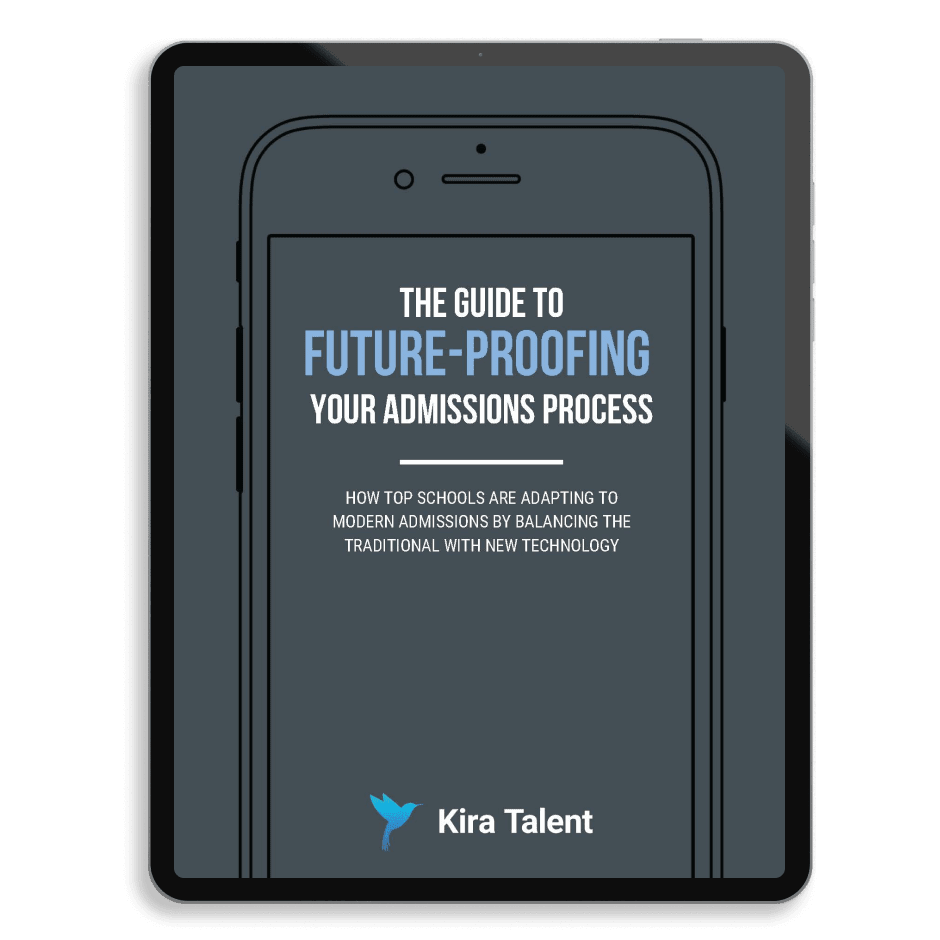When assessing an applicant, academic ability is only one piece of the puzzle. To see the whole picture, leaders in the admissions space are leveraging new and innovative methods of evaluating soft skills and emotional aptitude.
Having recognized the limitations of standardized testing, admissions teams are implementing more intricate criteria by which they identify best-fit students. The idea is not to get rid of the way in which they evaluate applicants, but to round it out. With technology creating more ways of comprehensively assessing the social and emotional intelligence of prospective students, schools are finding holistic approaches that work for them. For several universities, that includes personality assessments.
Getting the full picture
Admissions leaders at Harvard and the University of California are using personality assessments to supplement their applications, the latter going so far as to forgo the SAT and ACT in favour of a new, holistic approach. And they’re hardly the only ones.
Researchers from Oakland University, Western University, and the University of Guelph, for example, have found that evaluating personality traits helps predict both academic and clerkship performance of medical students.
To learn more about the study, read the paper in Science Direct.
The MCAT (and its earlier equivalents) have been measuring medical school readiness since the late 1920s. However, researchers and faculty members are finding that while the MCAT is great for predicting academic success, it’s less indicative of how students will perform in their internships or clerkship rotations.
When the researchers combined personality trait assessments with MCAT scores, grade point averages, and feedback from interviews, they found an eight percent increase in the likelihood of success among students who possessed relevant key traits.
“This was a statistically significant improvement, and I would argue that, as in the case of many jobs, helping improve candidate selection even by modest amounts has strong practical significance,” said Dr. Matthew J.W. McLarnon, the lead researcher on the project, in a release from Oakland University.
We spoke with Dr. Deborah M. Powell from the University of Guelph, who worked on this research with McLarnon and colleagues, to find out how medical programs can apply the learnings from this research in their admissions process.
Balancing both sides
Powell stressed that the MCAT is still an excellent predictor of academic performance, but that admissions teams could augment their admissions process by assessing applicants for personality traits as predictors of patient interaction and clinic performance.

“Any career where you have a strong academic component as well as a strong intrapersonal component could benefit from assessing personality traits,” she said. “You wouldn’t want to ignore the academic component, but you need to ensure students have the skills to deal with people as well.”
As far as traits to look for, the team selected both broad and narrow personality traits that a number of experts believed were most important.
Measuring how students scored in ‘conscientiousness’ and ‘achievement orientation’ was a major factor in their performance in both academics and clerkship, said Powell. Whereas traits like ‘social confidence’ and ‘tolerance’ were quite important for clerkship performance, but were less relevant to academic performance.
She explained that a structured personality test could be a good addition to an existing interview, as long as interviewers were effectively trained, or had the correct tools to evaluate these traits.
“Personality is difficult to assess in a high stakes situation. Personality questionnaires are efficient, but it’s hard to prevent people from faking them,” she explained.
Discover how Kira can help broaden your defence against application fraud
“If you’re going to use it in high stakes situations like at the admissions stage — you’d need to design the assessment in a way where [students] could not fake it. Find a questionnaire that could be easily administered for people to complete honestly, or enhance the interview by training your interviewer to understand what these traits look like.”
Putting personality assessments into practice
Powell suggests that a combination of self-assessment and structured interview would be ideal, as reviewers could check for consistency in self-reporting and interviewer evaluation.
Digital assessments and artificial intelligence (AI) can help provide both additional insights into applicants' personality traits, as well as help mitigate potential reviewer biases. If you’re using video assessments in your admissions process (high five!), then AI could be the next step you take in helping your team evaluate the social and emotional intelligence of applicants. By analyzing applicant videos for speech, text, verbal and non-verbal cues, and cross-referencing the Big Five personality traits model, an AI tool can generate a personality assessment of each applicant.
While it’s important to always have a human hand guiding admissions decisions, AI has come a long way in supporting that process. By expediting preliminary tasks, AI allows for teams to spend more time giving each applicant due focus.
Interested in AI powered pre-screening? Discover how to leverage it in Kira Talent.
Having multiple formats through which the applicants can present their personalities helps reduce the influence of reviewer bias and give a more authentic picture of the individual. And while it may seem like adding assessments would simply increase the workload for admissions teams, with the correct tools, a holistic process can find you your best-fit applicants while saving you precious time.



